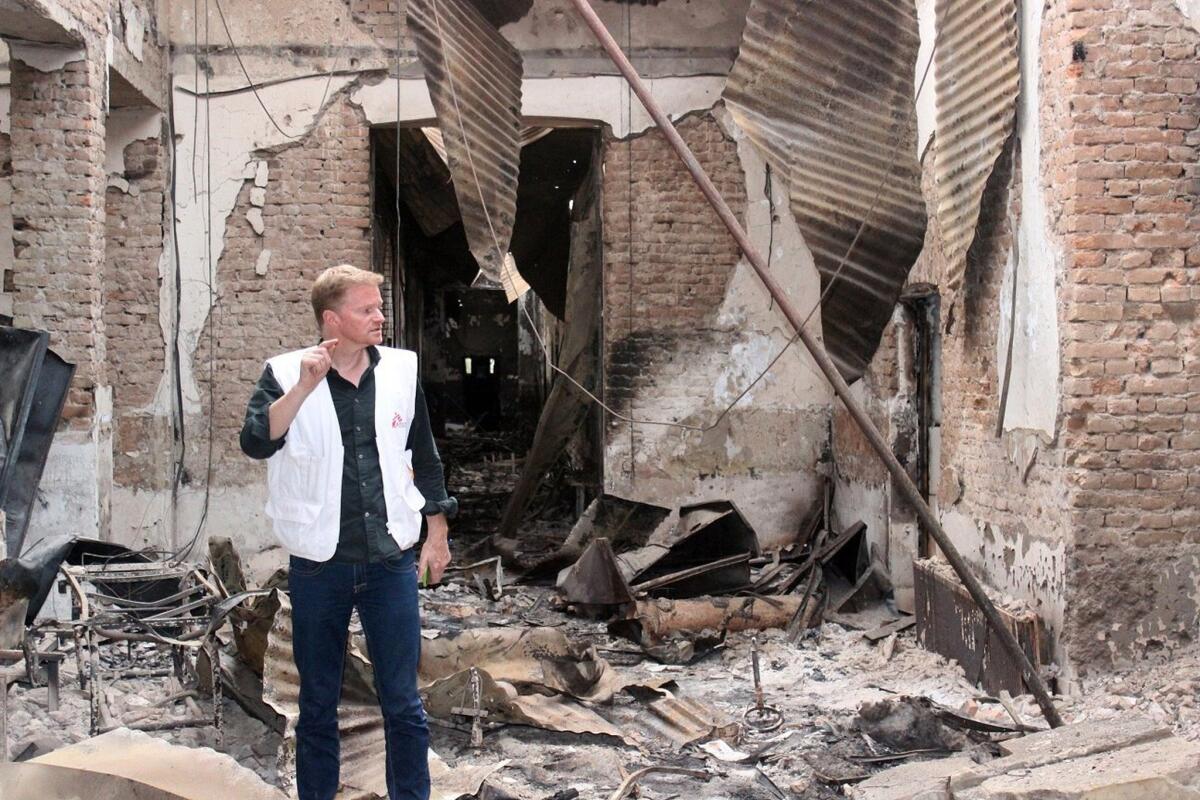Afghan bombing death toll rises to 30, says Doctors Without Borders

Christopher Stokes, general director of Doctors Without Borders, examines the charred remains of the organization’s Kunduz hospital after it was hit by a U.S. airstrike.
- Share via
reporting from KABUL, Afghanistan — The number of people killed when U.S. forces bombed a trauma hospital in northern Afghanistan this month has risen to 30, the international medical charity Doctors Without Borders, which ran the clinic, said on Sunday.
The death toll includes “10 known patients, 13 known staff and seven unrecognizable bodies,” the organization said in a statement. The clinic in Kunduz was bombed by U.S. forces on Oct. 3.
The charity, also known by its French acronym MSF, said that the corpses were found in the debris of the destroyed hospital buildings and “have not been identified.” They may include one staffer and two patients still missing and presumed dead, it said.
The bombing happened as Afghan forces with U.S. air support battled to retake Kunduz from Taliban fighters who overran the city on Sept. 28 and held it for three days.
Two military inquiries and an Afghan government probe are investigating why the hospital was bombed.
The head of U.S. forces in Afghanistan, Gen. John F. Campbell, has said the hospital was bombed by mistake after Afghan forces requested an air strike. President Obama has apologized.
MSF has demanded an independent inquiry into the incident, saying the hospital was deliberately bombed numerous times over the course of an hour after 2 a.m. on Oct. 3.
The main building was destroyed and the hospital has been shut down. MSF has said it is unsure when it will be able to resume operations in Kunduz.
On Saturday, NATO said it was continuing its inquiry into the bombing and had appointed three U.S. military officers from outside the chain of command to handle the investigation to ensure impartiality.
Campbell had appointed U.S. Army Maj. Gen. William Hickman and two brigadier generals to continue the investigation begun by Brig. Gen. Richard Kim, NATO said in a statement.
The results of the NATO investigation had been expected last week but appear to have been held up by difficulties in identifying the remains of bodies in the hospital.
More to Read
Sign up for Essential California
The most important California stories and recommendations in your inbox every morning.
You may occasionally receive promotional content from the Los Angeles Times.










